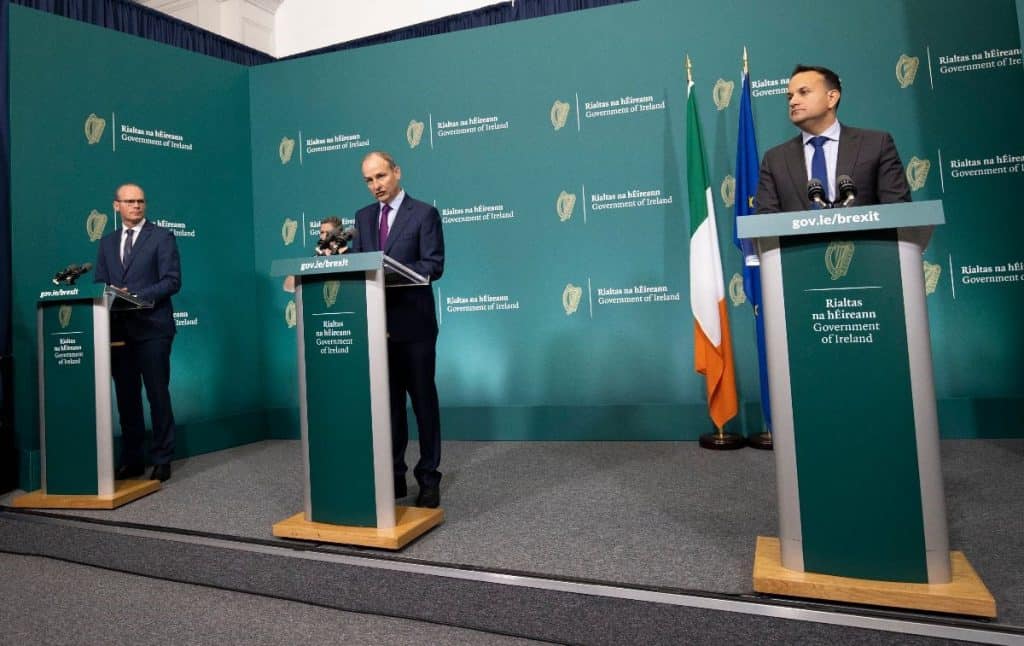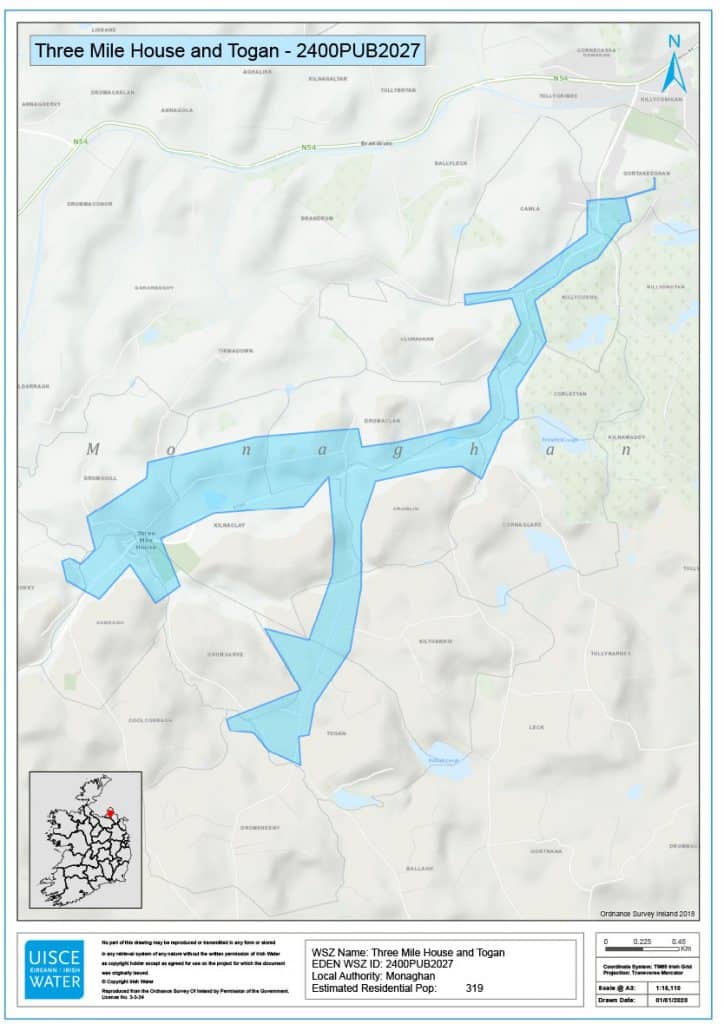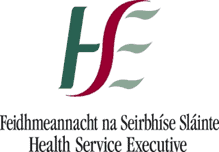Government launches Brexit Readiness Action Plan on the steps businesses and individuals should now take ahead of the end of the Transition Period on 31 December
The Government has today published its Brexit Readiness Action Plan. This call to action outlines a broad range of changes that will occur in less than four months’ time, regardless of the outcome of the ongoing EU-UK negotiations. It provides clear and concise advice on steps that need to be taken now by businesses and individuals in order to prepare for the end of the Transition Period on 31 December 2020.

Launching the Brexit Readiness Action Plan, the Taoiseach, Micheál Martin TD said:
“In less than four months’ time, regardless of the outcome of the current negotiations, the UK will be outside the EU’s Single Market and Customs Union.
“The Government’s Brexit Readiness Action Plan published today lays out the profound changes that are going to take place as a result of Brexit and the steps Irish businesses and individuals should now take.
We know this is already an extremely challenging time for businesses across the country. The Government will continue to provide support and guidance, and working together, taking action now, we can reduce the impact of Brexit as much as possible”.
The Action Plan outlines the changes which will take place at the end of the year, the most significant and immediate being that, as of 1 January 2021, the UK will be outside the EU’s Single Market and Customs Union. This will have significant implications for every business who moves goods to, from, or through Great Britain.
Tánaiste and Minister for Enterprise, Trade and Employment Leo Varadkar TD said:
“In 2020 we’ve seen businesses across the country fundamentally change how they do business – whether it’s a restaurant moving to take away, a shop moving on-line, or changing from an office-based business to working remotely. Once again we are asking businesses to take action. Economic Brexit is happening at the end of the year. Free Trade Deal or No Free Trade Deal, the UK will leave the Single Market and Customs Union in little more than sixteen weeks. For companies that trade with Britain, things will not be the same.
“Making sure your business is ready for any changes to customs is crucial. So, we are making available a grant up to €9,000 per employee taken on or redeployed to enable businesses build their capacity to manage any customs changes. Practical training is available, through Enterprise Ireland which is running an online Customs Insights course and through Local Enterprise Offices which are providing one to one Brexit mentoring. The €2 billion Credit Guarantee Scheme we opened earlier this week, the Microfinance Ireland loan, the Future Growth Loan Scheme, the Restart Grant Plus, the VAT reduction, warehousing of tax liabilities and of course the EWSS will also help as will increased Government spending on public services, infrastructure, education and skills. All designed to help businesses survive this difficult period and protect jobs.”
The Action Plan provides guidance and advice to business and individuals in areas including the trade in goods and services, customs processes, import duties, EU single market accreditations, use of the UK land bridge, retail trade, including online retail with the UK, the transfer of data, the movement of pets, recognition of qualifications, and many other issues which will arise at the end of the Transition Period.
Minister for Climate Action, Communication Networks and Transport, Eamon Ryan TD said:
“Brexit is going to change the way business operates and we need to be ready. The public and business response to the challenges of the last year have been extraordinary. We have done so much to protect one another and to move forward, it has been remarkable. But we need to continue to look forward. The challenge of Brexit to Irish business is huge but by working together and taking action now we can reduce those impacts.
Since the outset of the Brexit process, transport connectivity has been one of our key concerns, and in particular the connectivity to the UK and our EU trading partners. Brexit will bring change regardless of whether an agreement is achieved or not.
Obviously these matters remain the subject of the ongoing negotiations and it is not possible to predict the outcome. That being said, there are actions that we as Government, industry and citizens can take to mitigate the impacts of the UK’s exit from the Single Market. We need to focus and work towards this. “
1 January 2021 is very different from earlier no-deal cliff edges. It will bring permanent change in the way the EU and UK trade and engage. Government, business and individuals must work together and take the necessary steps now to prepare for the new reality of the UK outside of the EU while we remain at its heart. Ireland will do this as part of the EU 27 with the strength and certainty that brings.
Minister for Foreign Affairs, Simon Coveney TD said:
“There is no more time, no matter what the status quo will change on January 1st next and we need to use the months between now and then to ensure no business is left behind”
Today’s launch of the Brexit Readiness Action Plan is accompanied by two new Government programmes to assist businesses prepare for new customs and trading arrangements. These are:
Ready for Customs – through Enterprise Ireland a grant of up to €9,000 will be provided to businesses per eligible employee hired, or redeployed within the business, to a dedicated customs role. This has been funded from a €20m Brexit Fund made available under the July Jobs Stimulus;
Clear Customs Online 2020 – Skillnet Ireland’s free online customs training, to support the customs intermediary sector and businesses that moves goods frequently to, from, or through Great Britain.
The Government is also today publishing the General Scheme of the 2020 Brexit Omnibus Bill, which addresses a wide range of complex issues that will arise at the end of the Transition Period. This legislation will be brought before the Oireachtas in the autumn.
A new communications campaign focused on ensuring business and individuals are prepared for Brexit will also be launched today. This will be supported by the issuing by Revenue of letters to over 90,000 companies in the coming days who have traded with the UK since 2019, in which detailed information, as set out in the Action Plan, on the steps they must urgently take to prepare for Brexit will be outlined. The letters will be supported by a telephone call campaign.
Regardless of the outcome of the future relationship negotiations, the provisions of the Withdrawal Agreement and the Protocol on Ireland and Northern Ireland will apply. This protects the peace process and avoids a hard border on the island of Ireland, while preserving the integrity of the EU Customs Union and Single Market, and Ireland’s place therein. Under the Protocol, the Union Customs Code and other EU provisions necessary to preserve the integrity of the Single Market will continue to apply to and in Northern Ireland. This ensures that from Northern Ireland also will have free and open access to the EU Single Market.
For more information go to gov.ie/Brexit
Government Brexit Events
The Government of Ireland has held over 200 events nationwide to date. See upcoming event details here:
- Clear Customs Online Training; Run by Skillnet Ireland, this programme also launched today aims to boost your in-house customs capacity. Apply now at this link
- ONLINE Prepare your Business for Customs Workshops: run by Local Enterprise Office’s over more than 24 dates from today. More here.
- Webinar on Brexit & the Services Sector; run in partnership with Newry Chamber of Commerce and Intertrade Ireland,10th September, more here
- Customs Readiness Programme: run by Bord Bia, this programme will run on 24th Sept, 1st/8th October. For more info click here
For more information on upcoming Brexit events, check out www.dfa.ie/brexit/events/





 Drinking water is sometimes tested for the presence of metals.
Drinking water is sometimes tested for the presence of metals.